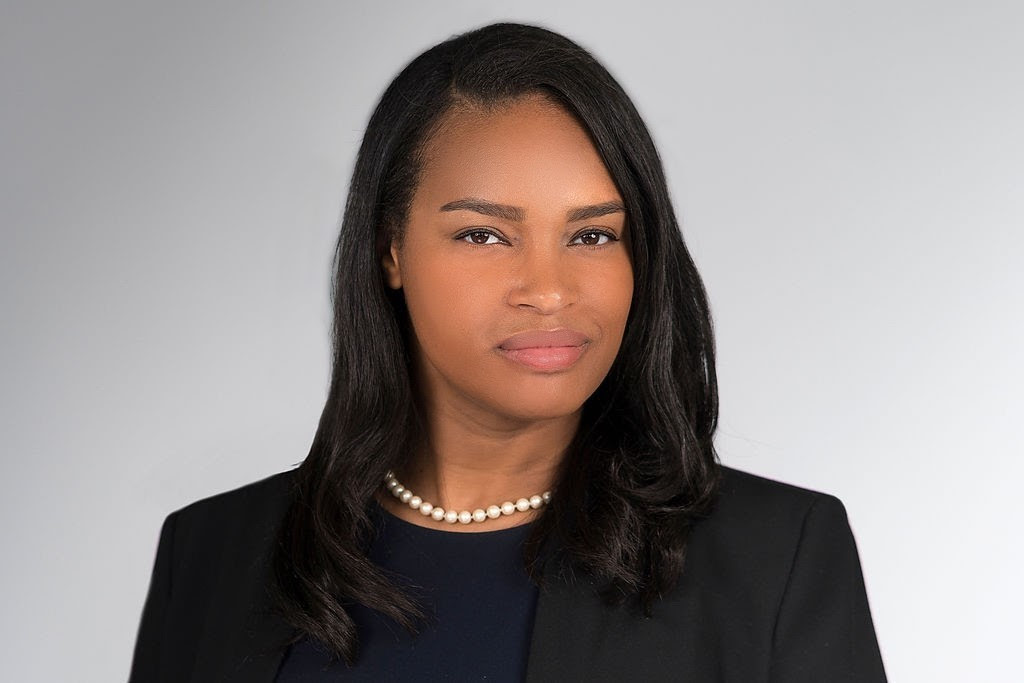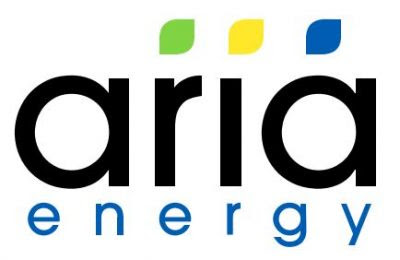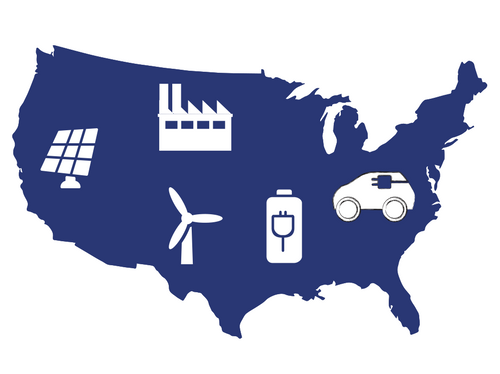Recent Posts
Blog Categories
- Newsletter (403)

Regulatory Actions On Solar Project Interconnection, Power Purchase Agreements
June 7 was a busy day at the Michigan Public Service Commission (MPSC), with important orders on Consumers Energy’s interconnection standards and timelines, Consumers Energy’s integrated resource plan, and issues related to PURPA.
Responding to objections from Michigan EIBC and other stakeholders, the MPSC wisely decided not to waive several deadlines for the interconnection application process for solar projects with Consumers Energy Co.
The order spares Michigan solar developers from additional delays in the interconnection process that could have led to “significant financial impacts” on those developers, as Michigan EIBC President Laura Sherman said in comments filed with the MPSC. There are specific standards for the minimum number of days an electric utility has to deliver key milestones along the path of connecting a project to the grid. In addition to interfering with land acquisition, contractor deadlines and other issues, delays are particularly harmful this year due to the phase-out of the federal investment tax credit for solar. In order to qualify for the full 30% credit, a solar project must commence construction by the end of calendar year 2019.
As Michigan EIBC argued in comments, waiving deadlines would reduce the utility’s incentive to continue reducing the backlog of interconnection applications. Regulators agreed with this logic. The MPSC “commends Consumers for its additional efforts to move applicants through the interconnection process” and “finds that granting a partial waiver of the Interconnection Standards would inhibit progress and is not necessary,” the orderstated.
Read more about the background of this interconnection issue in this blog post from Michigan EIBC published before the MPSC decision.
Also on June 7, the MPSC approved a settlement agreement between Consumers Energy and a variety of groups including the Attorney General regarding the utility’s long-term plan to meet customer needs over the next five, ten, and fifteen years. Notably,, as a result of the settlement, Consumers Energy’s integrated resource plan shifts the utility toward more competitive purchases of energy from third party developers. As approved by the MPSC, Consumers Energy will hold competitive power capacity bidding processes administered by a third party. The utility can own no more than half of the capacity procured through competitive bidding. The rest will come from power purchase agreements with independent projects.
The MPSC also reaffirmed its previous rulings regarding the terms for power producers already in the queue to sell power to the utility under contracts related to the Public Utilities Regulatory Policy Act (PURPA). Moving forward, the MPSC ruled that PURPA avoided cost rates for Consumers Energy will be set based on the competitive bidding process.
New Value Streams for Energy Storage Presented at Grand Rapids Networking Lunch
Michigan EIBC has been working to catalyze the nascent energy storage market in Michigan through efforts like a June 10 networking lunch event at Varnum LLP in Grand Rapids.
The potential for storage has perhaps never been more promising. Costs of lithium-ion battery packs have declined from $1,160 per kWh (in 2018 dollars) to just $176 per kWh in 2018, according to Bloomberg New Energy Finance. Last year the state legislature passed a resolution supported by Michigan EIBC that encouraged the Michigan Agency for Energy to discuss integrating storage into the state’s market with interested stakeholders. In response, the agency held an event supported by Michigan EIBC and featuring multiple Michigan EIBC members, which brought together stakeholders on March 25.
On June 10, a presentation from Midcontinent Independent System Operator (MISO) Market Design Advisor Bill Peters focused on new revenue opportunities for storage on the horizon. MISO operates the electric grid in much of the middle of the country, including Michigan.
The mix of energy in MISO’s sprawling region is shifting to more and more renewable energy, which creates an opening for storage to back up new solar and wind projects. As Peters detailed in his presentation, MISO projects that under an accelerated scenario its generation could shift from 48% coal, 24% natural gas, 8% wind and a relatively negligible amount of solar in 2017 to 33% coal, 20% gas, 25% wind and 4% solar in 2032.
MISO’s region has only 28 MW of grid-scale storage now, but 475 MW were added to the interconnection queue in 2018, and preliminary numbers show the queue could soon be at 2 GW of capacity.
Peters explained the new storage opportunities coming as a result of the Federal Energy Regulatory Commission’s recent Order 841. Under the order, MISO must ensure that electric storage resources can bid into the wholesale electricity market and be able to set the clearing price as both a seller and buyer. Ultimately, storage may provide “multiple value streams,” Peters said, including capacity, ancillary services and transmission and distribution services.
The event’s audience also got an overview from Consumers Energy Project Manager Amy Hoeksema of the Circuit West project, which is an energy district that covers a 13-block area on the west side of Grand Rapids and includes rooftop solar plus battery storage system. Circuit West includes solar arrays totaling 500 kW built on the rooftops of an office building, parking deck and grocery store. A nearby 500-kW lithium-ion battery stores energy from the solar panels.
Task Force To Deal With Upper Peninsula Energy Issues
On June 7, Gov. Whitmer announced the formation of a task force that will focus on the thorny energy issues confronting the Upper Peninsula.
The task force will be an advisory group within the Department of Environment, Great Lakes and Energy and consist of 13 members appointed by the governor. Issues the task force will tackle include the high electricity prices in the UP and the heavy reliance on propane for heating. Most of that propane comes from Enbridge’s Line 5 pipeline that the executive order creating the task force describes as an “ever-present threat” to the Great Lakes.
Michigan EIBC calls on this new effort to highlight the Upper Peninsula’s vast potential as a home for renewables and efficiency that could mitigate the high energy costs there. The demand for more renewables is clearly present, as seen in 2016 when Upper Peninsula Power Co. (UPPCO) became the first Michigan utility to max out its net metering/distributed generation program for Category 1 installations (under 20 kW) after so many customers enrolled their solar arrays into the program. Several weeks ago, the Michigan Public Service Commission increased the cap for UPPCO’s net metering/distributed generation program from 1% to 2% of the utility’s average peak demand.

Gov. Whitmer Appoints CLEAResult’s Brandy Brown As Climate and Energy Advisor
Michigan EIBC is pleased to congratulate Brandy Brown, previously with Michigan EIBC member CLEAResult, who on June 13 was announced as the leader of Michigan’s newly formed Office of Climate and Energy.
The office was created earlier this year as part of Gov. Whitmer’s restructuring of the Michigan Department of Environmental Quality into the Michigan Department of Environment, Great Lakes and Energy. Brandy will be the department’s climate and energy advisor. The purpose of the Office of Climate and Energy, part of the new department, is to work with the governor to find ways to mitigate climate change impacts and embrace sustainable energy solutions.
Brandy worked on electric vehicle, energy efficiency and low-income energy issues at CLEAResult. Brandy has also been a leader in the advanced energy sector serving on the Board of Advancing Women in Energy and as a participant in the Michigan Clean Energy
Leaders Program.
New Member

Aria Energy
Headquartered in Novi, MI with offices in Oakfield, NY; Frederick, CO and Gilbert, AZ, Aria Energy provides baseload renewable energy to utilities and other customers across the United States. Aria Energy owns and/or operates a diversified portfolio of 42 renewable energy projects across 17 states, collectively representing collectively representing 220 MW of electric capacity and 20,760 MMBtu/day of renewable natural gas.
Renewing Members

5 Lakes Energy
5 Lakes Energy is a Michigan-based policy consulting firm dedicated to advancing policies and programs that promote clean energy, sustainability and the environment.

Atwell, LLC
We are a passionate group of advocates working to protect and enhance what makes this place so special. For us, that’s our lively towns and cities, our clean water, our farm and forest landscape, and the spirit of community that ties us all together. We build partnerships, raise awareness, and do our best to support what we see as an exciting community resilience movement that is gaining traction in Michigan. While our committed staff works hard to advance our pro-environment, pro-economy mission, our strength comes from the support, partnership, and involvement of thousands of people who share a sense of optimism that the effort we put forward today will lay the groundwork for a brighter future.
Michigan Energy News
- Michigan EIBC member Michigan Solar Solutions was featured in a story about how solar installers around the country and in Michigan are grappling with changes to net metering laws.
- DTE’s integrated resource plan “feels both less ambitious and less committed on efficiency and renewables” compared to Consumers Energy’s plan, according to a blog post from the Natural Resources Defense Council.
- Consumers Energy may accelerate the planned retirement of two coal-fired units at the J.H. Campbell Generating Complex.
- By mostly delaying increases in solar power until after 2045, DTE’s integrated resource plan could be putting the utility’s ratepayers at risk, according to the Union of Concerned Scientists.
- General Motors confirms that it will be launching an all-electric pickup truck “in the near future.”
- The city of Petoskey is exploring a capped landfill as a site for a solar project.
- The Grand Haven Board of Light & Power will not only buy power from a Tuscola County solar project instead of the planned Pegasus wind project, but the municipal utility says the solar energy will be cheaper.
- A proposed moratorium on wind turbines in Branch County will likely not hold up in court, according to the chair of the county’s planning commission.
- Following the retirement of the Presque Isle coal-fired plant in the Upper Peninsula this year, Upper Michigan Energy Resources Corp. is looking at making major investments in solar energy.

National Energy News
- Starbucks strikes a three-project deal to buy 50 MW from an Allete Clean Energy wind project in Oklahoma, 50 MW from a solar project in Texas being developed by Michigan EIBC member Cypress Creek Renewables and 46 MW from a BayWa r.e. solar project in North Carolina.
- The U.S. wind industry is concerned that tariffs on Chinese imports could threaten the industry’s global supply chain.
- The impact of wildfires on the electric grid in California has led to a surge of consumer interest in batteries to store energy.
- The amount of data infrastructure and security needed to accommodate smart grid technology is daunting for many utilities.
- By underestimating the speed at which the world would move toward renewable energy, General Electric cost investors almost $193 billion from 2015 to 2018, according to a new report.
- Electric vehicles will not drive a substantial increase in electricity demand in the near to midterm, according to McKinsey analysts.
- Pro-renewable energy groups say that Federal Energy Regulatory Commission data–once the capacity of a “phantom” coal plant that has been abandoned is removed–show that renewable generating capacity has surpassed coal capacity for the first time ever in the U.S.
- Wisconsin’s utility-funded energy efficiency program delivers $3.66 in economic benefits for each dollar invested, making it one of the nation’s most cost-effective efficiency programs.
Michigan Energy Events
The IEEE Transportation Electrification Conference & Expo (ITEC) www.itec-conf.com will be held in Novi, MI. 19-21 June 2019. (ITEC’19) is aimed at helping the industry in the transition from conventional vehicles to advanced electrified vehicles.
The Michigan Environmental Council is holding a Grand Rapids Clean Energy Forum on June 28 to talk about the current status of renewable energy in Michigan. RSVP here.
Michigan EIBC Members Only: Please join us in person on Friday, June 21 from 11:00 am to 1:00 pm for an In-Person Policy Committee Meeting at Midwest Strategy Group in downtown Lansing. We will have a special guest presenter at this meeting. Reka Holley, Departmental Analyst of the Michigan Public Service Commission, will give a presentation on the most recent DTE Rate Case and answer questions from attendees.
The 63rd annual Michigan Energy Providers Conference will be held July 24 to 26 at the Grand Hotel on Mackinac Island. The conference will include speakers such as FERC Commissioner Neil Chatterjee and CMS Energy and Consumers Energy President and CEO Patti Poppe.
National Energy Events
The Roadmap Conference, the largest annual conference on electric and smart mobility, will be held June 18 to 19 in Portland, Ore. A full agenda is available here, and a discounted registration link is here.
Attend the Clean Cities Renewable Procurement Summit in Denver, Colorado July 23-25. Register here. Early bird rates expire June 14.
Attend the Grid Evolution Summit hosted by SEPA on July 29 – August 1, 2019 | Washington, DC
Opportunities
The Michigan Energy Office, now part of the Michigan Department of Environment, Great Lakes and Energy, has a new $50,000 matching grant opportunity for studies to assess the feasibility of installing combined heat and power (CHP) projects at Michigan facilities like hospitals, hotels, urban centers and universities.